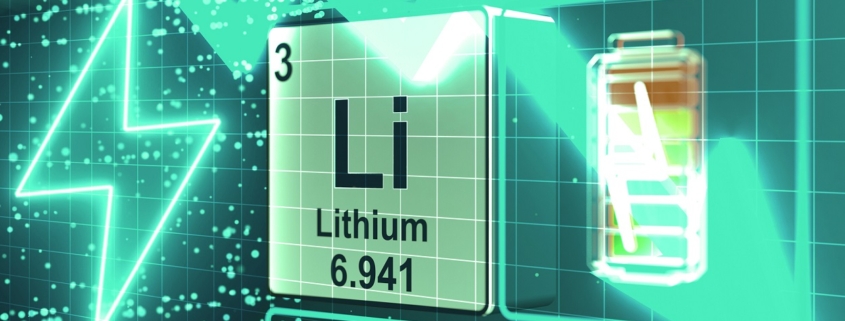How long do lithium ion batteries last?
Lithium-ion batteries now play a crucial role in our daily lives by powering various devices such as smartphones, laptops, and electric vehicles. As battery technology advances, users frequently question the longevity of their lithium-ion batteries. In this article, we will explore the lifespan of lithium-ion batteries, examine the factors influencing their life, and provide guidance on maximizing their longevity and identifying signs of deterioration.

Introduction
Over the years, lithium-ion batteries have become popular due to their high energy density, lightweight nature, and low self-discharge. However, like any other battery, their lifespan is limited and depends on several factors.
How long do lithium-ion batteries last?
A lithium-ion battery generally lasts 2 to 5 years, depending on its usage and maintenance. Experts typically measure the lifespan of a lithium-ion battery in charge cycles. Most lithium-ion batteries can withstand 300 to 500 charge cycles, while high-quality batteries may endure up to 1,000 or more cycles.
A charge cycle involves charging a battery to its full capacity and then discharging it back to zero. However, it’s crucial to note that the battery’s capacity will gradually decrease, and eventually, a replacement will be necessary.
Factors that affect the lifespan of a lithium-ion battery
Charge cycles, weather, age, and overcharging are the factors that can influence the life of a lithium-ion battery.
Charge Cycles
As previously stated, lithium-ion batteries have a finite number of charge cycles. The more frequently a cell is charged and discharged, the lesser its lifetime.
Temperature
High temps can have a detrimental effect on the lifetime of a lithium-ion battery. Heat can cause the battery’s components to deteriorate quickly, shortening the battery’s life.
Age
Lithium-ion batteries have a natural aging process, which causes them to lose capacity over time, even if not in use. Storing batteries in a cool, dry environment can help slow down this aging process.
Overcharging
Continuously charging a lithium-ion battery beyond its maximum capacity can lead to a shorter lifespan. Using a quality charger and avoiding overcharging can help maintain the battery’s health.
How to prolong the life of a lithium-ion battery?
You can take several steps to prolong the life of your lithium-ion battery.
Proper Storage
Store your batteries in a cool, dry place away from direct sunlight or extreme temperatures. This helps slow the aging process and maintain the battery’s capacity over time.
Partial Charging
Instead of charging your battery to 100% and draining it to 0%, keep it within the 20-80% range. This practice, known as partial charging, can help reduce stress on the battery and prolong its lifespan.
Avoiding High Temperatures
Keep your devices and batteries away from heat sources and direct sunlight. If you notice your device getting hot during use, give it time to cool down before continuing to use it.
Quality Products
Invest in high-quality batteries and chargers from reputable manufacturers. These products tend to have better safety features and more efficient charging, which can contribute to longer battery life.
Signs of deterioration on the lithium-ion battery
It’s essential to be aware of the signs that indicate your lithium-ion battery may deteriorate, so you can take action before it fails.
Decreased Runtime
One of the most noticeable signs of a deteriorating battery is reduced runtime. If your device is not lasting as long as it used to on a single charge, the battery may be losing capacity.
Swelling
Swelling in a lithium-ion battery indicates that it has been damaged through exposure to heat, overcharging, or physical impact. If you notice swelling, stop using the battery immediately and replace it.
Conclusion
Lithium-ion batteries are essential to our modern lives but have a limited lifespan. By understanding the factors that affect their lifespan, such as charge cycles, temperature, age, and overcharging, you can take steps to maximize their life. Proper storage, partial charging, avoiding high temperatures, and using quality products can all help prolong the life of your lithium-ion battery. Additionally, being aware of the signs of deterioration, such as decreased runtime and swelling, can help you take timely action to replace the battery before it fails.
FAQs
- Q: How many charge cycles can a lithium-ion battery typically last?A: Most lithium-ion batteries last between 300 to 500 charge cycles, although high-quality batteries may last up to 1,000 cycles or more.
- Q: Can I partially extend my lithium-ion battery’s life by charging it?A: Yes, maintaining a charge level between 20-80% (known as partial charging) can help reduce stress on the battery and prolong its lifespan.
- Q: Is leaving my device plugged in and charging overnight harmful?A: Most devices and adapters have built-in safety measures to avoid overcharging, so leaving your device connected overnight is usually secure. Unplugging the device once it has reached complete power is a wise practice to prevent possible problems.
- Q: How can I prevent my lithium-ion battery from swelling?A: To prevent swelling, ensure the battery is not exposed to high temperatures, overcharging, or physical impacts. If you observe any signs of swelling, discontinue using the battery immediately and replace it.
- Q: What should I do with my old lithium-ion batteries?A: Proper disposal of lithium-ion batteries is essential to prevent potential harm to the environment. Many local recycling centers and electronics stores have designated drop-off points for used batteries. Do not throw lithium-ion batteries in the trash; they can leak hazardous materials contaminating soil and water supplies.








